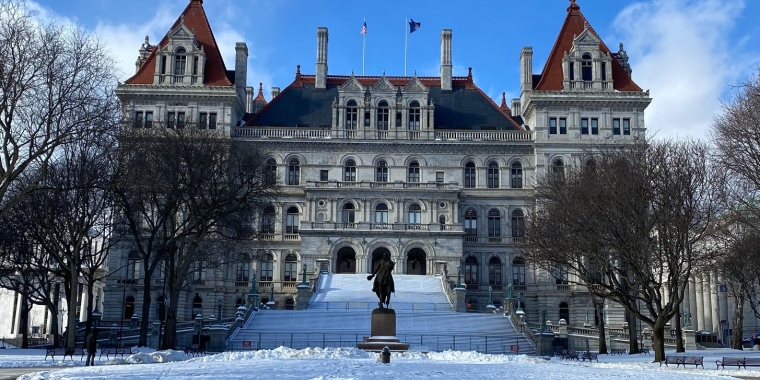
Stable Housing Can Mean Life or Death for HIV-positive New Yorkers
Senator Brad Hoylman-Sigal and Assemblymember Harry Bronson
January 25, 2024

As members of the LGBTQ community, we witnessed the horrors of the AIDS epidemic that ravaged our community from the late 1980s through the 1990s. We have also seen firsthand the impact of highly effective HIV treatment that sustains health and prevents the spread of HIV to others.
We know that in order to benefit from this lifesaving HIV care, it’s essential to have the safety and security of a stable home. For New Yorkers with HIV, housing quite literally can mean the difference between life and death. People with HIV experiencing homelessness or housing instability are unable to benefit from the medications that keep people with HIV healthy and stop transmission of the virus. Ample research shows that safe, stable housing is the single biggest predictor of health outcomes for people with HIV/AIDS.
That’s why for years, we’ve fought in the Legislature to provide support for housing-insecure New Yorkers living with HIV. Government can and should play a role in funding public health and housing equity – and there’s a straightforward step New York can take to increase housing stability.
Some 20,000 extremely low-income people with HIV in New York City rely on the New York State HIV Emergency Shelter allowance program and affordable housing protection in the form of a 30% rent cap. These supports enable recipients to achieve and maintain viral load suppression, stopping ongoing HIV transmission and saving millions in Medicaid costs on avoidable crisis care and new infections.
It’s cruel and unjust that this life-saving support is not available to low-income New Yorkers with HIV outside of NYC. There are an estimated 2,500 HIV-positive New Yorkers experiencing homelessness or housing instability and living outside of New York City. With a simple fix, the governor can extend the reach of this safety net and end homelessness for people with HIV in all communities across the state.
Monroe County, for example, has the highest rate of people living with HIV in central New York. Those in Monroe County who are living with HIV are more susceptible to experiencing housing instability and homelessness, which affects their ability to effectively manage their HIV infection. By marginalizing people living with HIV, we perpetuate health inequities instead of supporting good health practices that benefit our entire community.
Not only will this fix increase housing stability for vulnerable New Yorkers, it will save the state money. Since research shows that stable housing significantly improves HIV health outcomes, an investment in housing will mean a reduction in avoidable Medicaid spending – reductions that will more than offset the cost of housing assistance. Indeed, a fiscal analysis by the state Office of Temporary and Disability Assistance estimates that investing in meaningful rental assistance for low-income New Yorkers who remain homeless or unstably housed in communities outside of New York City will generate net Medicaid savings of up to $13 million each year.
HIV is no longer a death sentence, but the stigma, discrimination, and lack of housing people with HIV still experience can be. We need Gov. Kathy Hochul to include language in the final budget to mandate and fund equal statewide access to HIV housing assistance. By including this assistance for all low-income people with AIDS in this year’s budget, we can advance our goal of caring for marginalized New Yorkers – and generate savings in the process.
Assemblymember Harry Bronson of Rochester represents the 138th Assembly District. State Sen. Brad Hoylman-Sigal of Manhattan represents the 47th Senate District.
Share this Article or Press Release
Newsroom
Go to NewsroomLetter to the Attorney Grievance Committee on Rudolph Giuliani
January 11, 2021